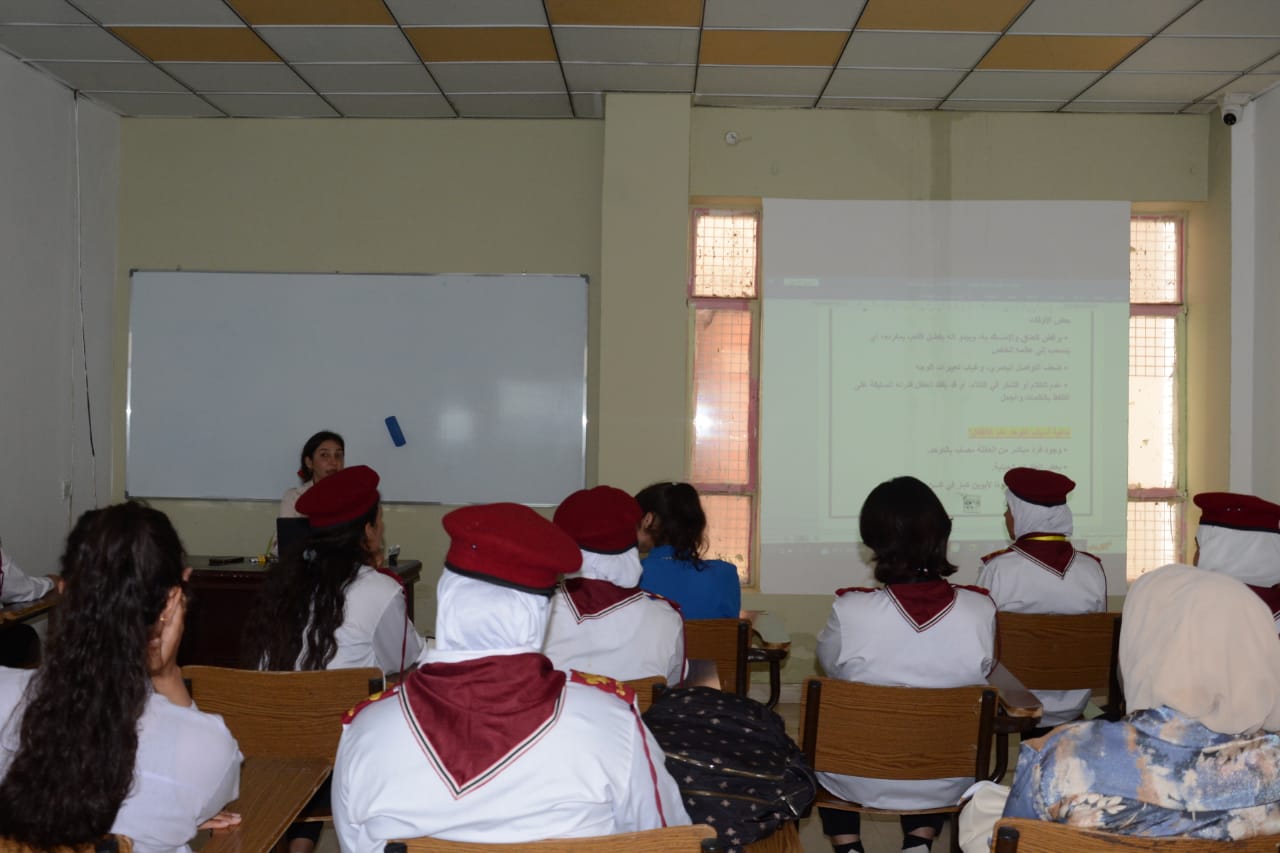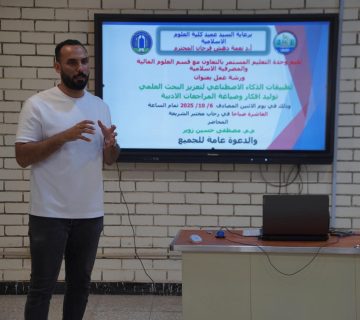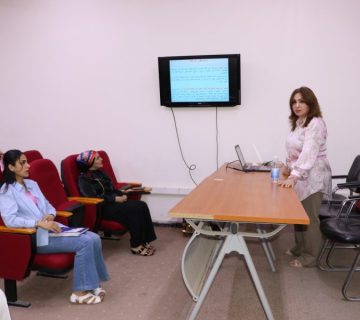The Scientific Affairs Unit at the College of Physical Education and Sports Sciences for Women, University of Baghdad, organized a scientific symposium titled “Autism Spectrum Disorders,” presented by the coordinator of the Team Sports Department, Ms. Sarah Hakim.
During the event, Ms. Hakim explained the concept of autism as conditions in which individuals face difficulty in developing normal social relationships, using language in a typical manner, or are completely unable to use it, and exhibit restricted or repetitive behaviors. Affected individuals struggle to communicate and engage with others.
She also highlighted its symptoms, such as a child’s lack of response when called by name, refusal of hugs and physical contact, preference for solitary play, poor eye contact, absence of facial expressions, absence of speech or delayed speech, or regression in the child’s previous ability to pronounce words and sentences. Simultaneously, she pointed out its main causes, including genetic disorders, environmental factors, and other factors such as birth complications, and the role of the immune system in autism. She emphasized that there is no medication capable of improving the core symptoms of autism spectrum disorder. However, certain medications can help control symptoms, such as antipsychotic medications or medications for depression and anxiety.
The symposium concluded with the presentation of a set of recommendations, the most important of which include creating a new routine, replicating a nursery-like atmosphere for your child, providing ample rest periods for children to engage in physical exercise, and allocating short periods of time for activities preferred by children. The activity aligns with the fourth goal of the United Nations Sustainable Development Goals, which aims to ensure inclusive and equitable quality education and promote lifelong learning opportunities for all.










